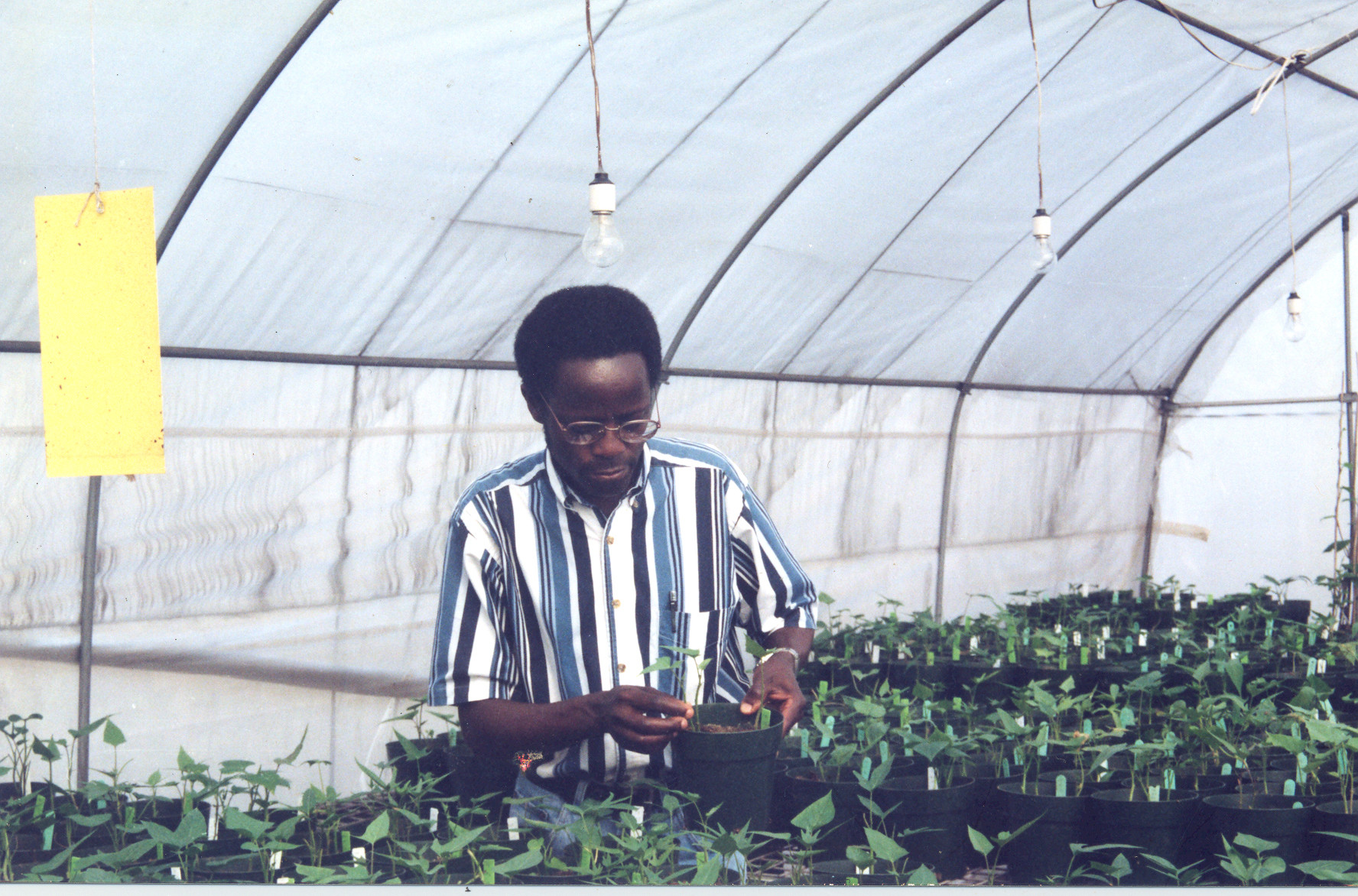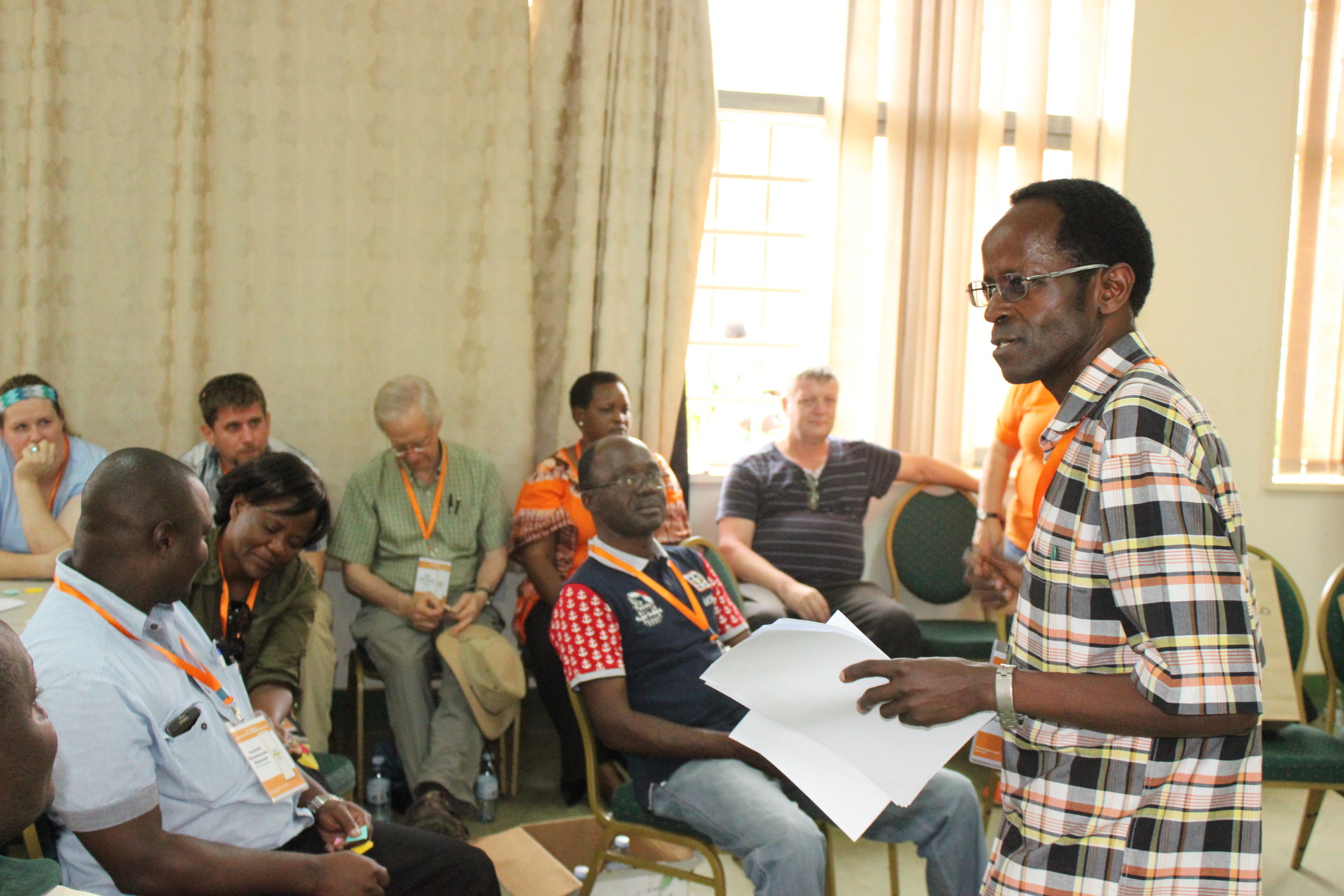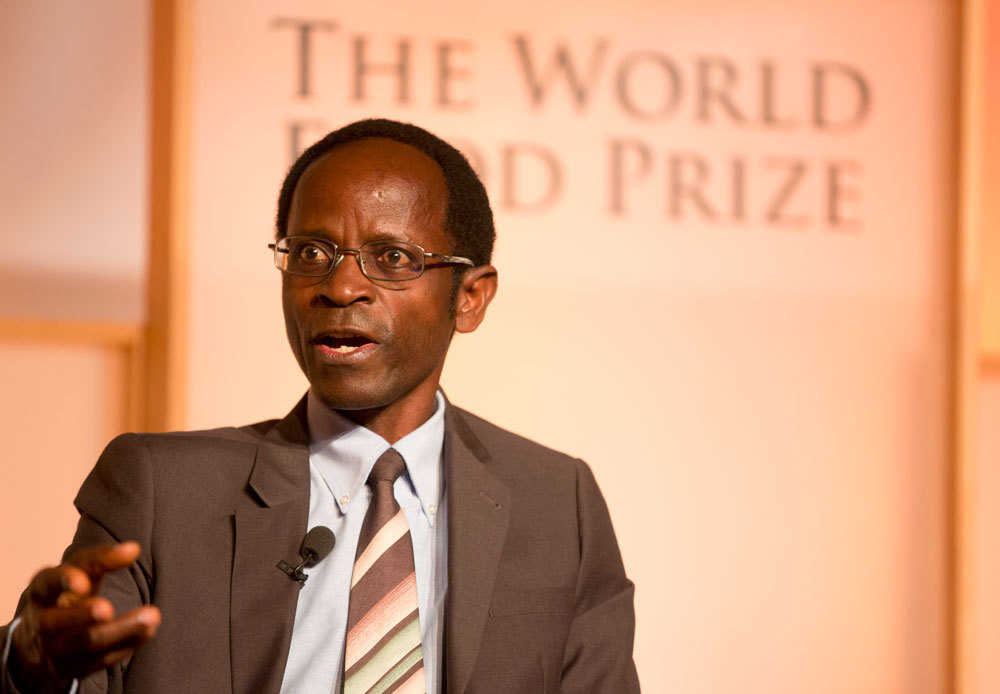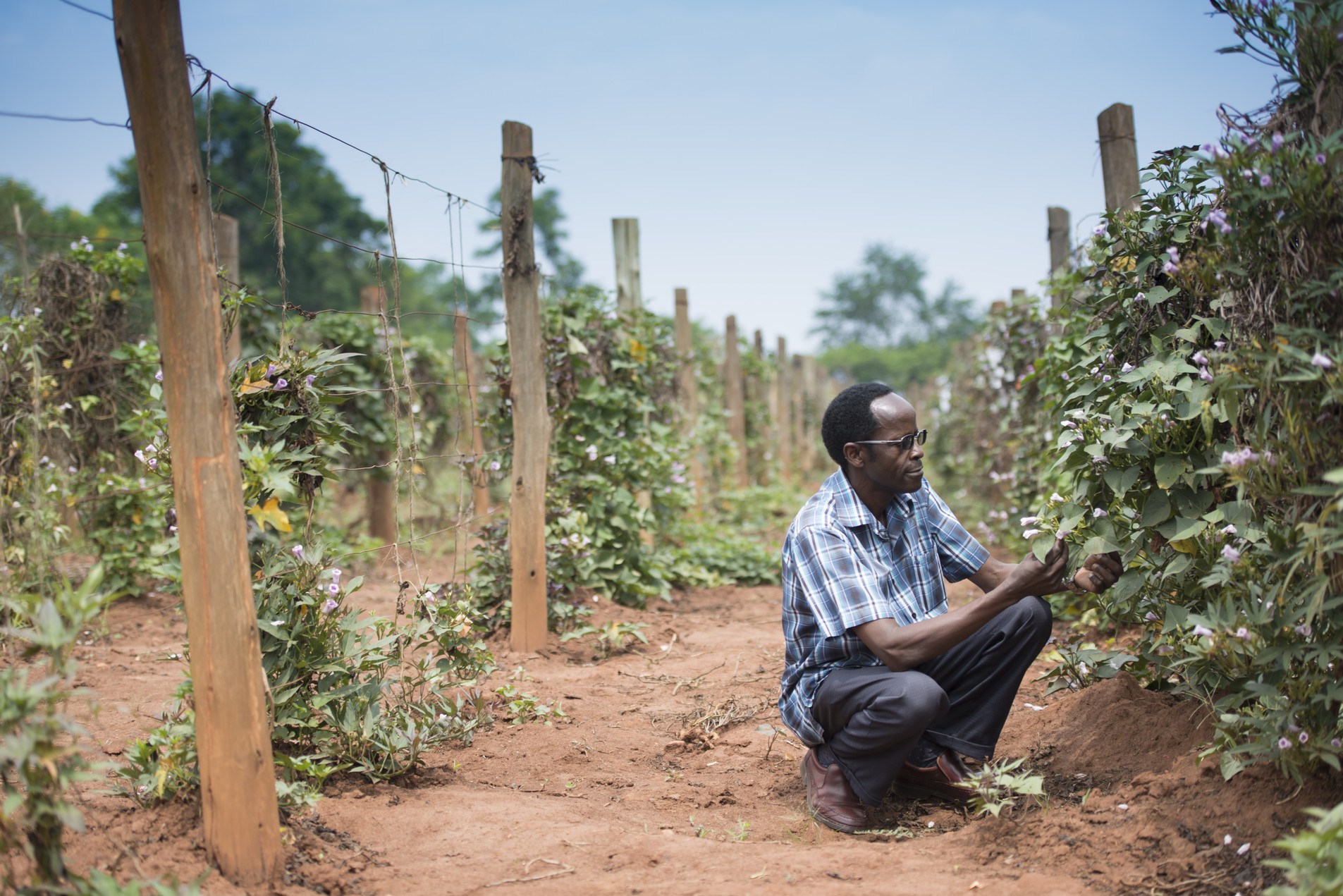From Farm to World Food Prize: Robert Mwanga's Path from Sweet Potato Breeder to Global Advocate
From growing up on a farm in a remote village in Uganda to winning the World Food Prize, Dr. Robert Mwanga’s career has been one of using innovation and education to better nourish the world. While a student, he became interested in the unique challenge of producing more nutrient-dense crops and integrating them into his community, focusing specifically on the orange-fleshed sweet potato.
 Over time, he became one of the world’s foremost sweet potato breeders, leading the dissemination of new high-yielding, pest- and disease-resistant orange-fleshed sweet potato varieties in Uganda and throughout East and Central Africa.
Over time, he became one of the world’s foremost sweet potato breeders, leading the dissemination of new high-yielding, pest- and disease-resistant orange-fleshed sweet potato varieties in Uganda and throughout East and Central Africa.
In 2016, he won the World Food Prize alongside three of his colleagues for their multi-year effort to develop disease-resistant, drought-tolerant, high-yielding varieties of orange-fleshed sweet potato and other biofortification projects in staple crops. Together, their work helped combat the devastating impacts of vitamin A deficiency and other nutrient deficiencies.
When sharing how the World Food Prize has impacted his life, Mwanga explains that the recognition has added new dimensions to his career as an agricultural scientist.
“The World Food Prize… has actually elevated my position to also work as an advocate for reducing micronutrient deficiencies”
“I’m a sweet potato breeder,” said Mwanga, “but, because I won the World Food Prize, that has actually elevated my position to also work as an advocate for reducing micronutrient deficiencies.”
Since winning the World Food Prize, Mwanga has been able to expand his impact and raise awareness of the global threat of “hidden hunger” - a deficiency in vitamins and nutrients. He continues to publish academic papers on breeding techniques and benefits, further advancing this important work.
By raising international awareness of key agricultural innovations, such as Mwanga’s work on the orange-fleshed sweet potato, the World Food Prize also helps engage influential leaders and build much-needed political will to invest in such solutions.
 |
 |
 |
In addition, Mwanga believes that the World Food Prize has given more power and influence not only to him but to all those who are advocating for reducing micronutrient deficiency.
International centers that support this work, like the International Center for the Potato (CIP) where the 2016 Laureates conducted their groundbreaking work, need opportunities like the World Food Prize for public attention and support. With increased awareness, researchers and scientists may receive additional funding opportunities or resources to innovate and implement new crops and programs to better support global nutrition.
Elevating these centers and their work will “help move the work forward in alerting and sensitizing governments to pay attention to influence policy that will positively reduce hidden hunger,” Mwanga noted.
With the World Food Prize, Mwanga and his colleagues have not only been recognized for their groundbreaking work but have also been able to bring greater attention to the critical issue of nutrient deficiency, catalyzing future change and multiplying the impact of their work.
Nominations are now open for the 2024 World Food Prize Laureate. Nominate an inspiring food security hero today.


